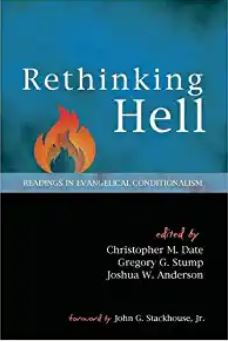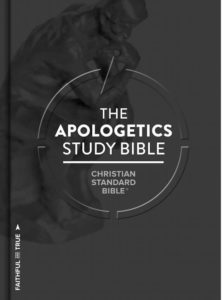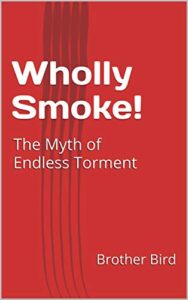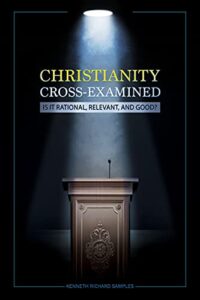Rethinking Hell is a fantastic work. This book is a collection of essays and other writings by a variety of different Evangelical authors who promote a view known as Annihilationism or conditionalism. The editors are Chris Date, Greg Stump, and Joshua Anderson. Part 1 of the book contains two chapters interviewing the subject of evangelical conditionalism. Parts 2 and 3 involve giving a biblical and exegetical conditionalism. Part 4 involves philosophical objections against conditionalism as well as philosophical objections for it. Finally, in part 5, we have a section on church history. I find the case for the annihilationist position to be overwhelmingly powerful. I was already convinced after reading Edward Fudge’s “The Fire That Consumes” which I wrote a review of here. However, if I had started with Rethinking Hell instead of The Fire That Consumes, this book would have convinced me to give up the traditional view of Hell. The case is that powerful.
Now, given that this is a collection of book chapters, academic papers, blog posts, journal articles, et. al each chapter is stand alone from the rest of the book. As a result, there is a lot of overlap in the exegetical portions, and you’ll see the same points pop up over and over. For me, this is actually a plus, since I learn best by repetition. I do have a tendency to read the same book more than once. That said, I do think others might find this annoying, so whether this is a pro or a con will depend on whether or not you’re like me and need to have something repeatedly pounded into your head for it to stick. I agree with one Good Reads reviewer who said of this repetitiveness that “Some may find this difficult to wade through, but perhaps a better way to see it as thorough and exhaustive. Almost every text is examined and every argument at least considered. This repetition illustrates the consistency of annihilationist exegesis.”
I shall now summarize why conditionalists think theirs is the correct biblical interpretation. Glenn A. People’s essay, “Introduction to Evangelical Conditionalism,” outlines its “principle arguments” under four headings:
- Immortality: “Eternal life in the sense of life without end is not a natural human possession. We are bereft of it because of sin, and God promises to give it to those who are united to Christ. Immortality is therefore not universal or inherent but conditional.” See, for example, John 3:16, 2 Timothy 1:9b–10.
- A World Without Evil: “The biblical writers anticipate a time when everything that exists will be united under Christ,” for example, Ephesians 1:9–10 and 1 Corinthians 15:24–28. “Creation itself will be brought into a state of sinless perfection to the praise of God’s glory, and the dualistic portrait of eternity with heaven on one side and hell on the other side finds no home in Scripture….”
- Substitutionary Atonement: “The New Testament is replete with the language of Jesus dying for sin, for sinners, and for us. Whatever else this might mean, it at least means that in Christ’s passion and ultimately his death we see what comes of sin,” for example, 1 Peter 3:18.
- Destruction: “Evangelical conditionalists observe that Scripture uses a range of language and images to refer to the fate of humanity without salvation through Christ: punishment, darkness, fire, death, destruction, being blotted out, and so on. Without any doubt, however, the overwhelming preponderance of the clearest such language speaks of the final death and destruction of the enemies of God.” For example, see Matthew 10:28, 2 Thessalonians 1:9, 2 Peter 2:6.
Arguments 1, 3, and 4 recur throughout the Rethinking Hell book. If you’re an atheist or other non-Christian who just can’t seem to wrap his mind around how a God who subjects people to an eternity of agony could possibly resemble what we call good, or if you’re a Christian who is earnestly wanting to know what The Bible really teaches about the fate the damned, you will want to get this book. I wish someone had given me this book when I was struggling with this justice of Hell.
Share this:
- Share on Facebook (Opens in new window) Facebook
- Share on X (Opens in new window) X
- Print (Opens in new window) Print
- Email a link to a friend (Opens in new window) Email
- Share on Pinterest (Opens in new window) Pinterest
- Share on Reddit (Opens in new window) Reddit
- Share on LinkedIn (Opens in new window) LinkedIn
- Share on Tumblr (Opens in new window) Tumblr
Discover more from Cerebral Faith
Subscribe to get the latest posts sent to your email.





“wanting to know what The Bible really teaches”
Is it possible that this is not what the Bible really teaches but more accurately, what you believe the Bible teaches as you read and consider it?
Thank you for posting this review and I agree this is one of the best books which broadly covers most of the scripture on this topic. As far as books which attempt to cover most of the scriptures, I would say that Rethinking Hell is maybe only second to the fire that consumes by Edward Fudge, and I am speaking from a perspective of having read dozens of books on annihilationism. In my opinion though, both Rethinking Hell and The Fire that Consumes do leave an important gap in their content. After having read both of these books and, like I said, dozens of others on this topic, Revelation 14:11 still gave me doubt in the annihilationist view. After much prayer and years of doing my own research, I believe that God showed me through the scriptures that the language of Revelation 14:11, “the smoke of their torment goes up forever and ever” is a specific reference to the virtually never-ending smoke of the Old Testament sacrificial system. The smoke of the continual morning and evening regular sacrifice went up for generations, every morning and every evening. Of course the smoke in the sacrificial system, at least in part, symbolizes God’s judgment and wrath against evil. It also carries the clear connotation of complete and utter destruction to the point of ashes, not unending torment. This mirrors what we see in Jesus’s New Testament descriptions of hell in which he uses special phrases from Malachi to point to verses in Malachi which describe the wicked being turned to ashes. See below:
• [Luke 13:28 ESV] 28 In that place there will be weeping
and gnashing of teeth, when you see Abraham and Isaac
and Jacob and all the prophets in the kingdom of God but
you yourselves cast out (ἔξω, outside, G1854).
• [Matthew 13:37-43, 49-50 NASB20] 37 And He said, “The
one who sows the good seed is the Son of Man, 38 and the
field is the world; and as for the good seed, these are the
sons of the kingdom; and the weeds are the sons of the evil
one; 39 and the enemy who sowed them is the devil, and the
harvest is the end of the age; and the reapers are angels. 40
“So just as the weeds are gathered up and burned with fire,
so shall it be at the end of the age. 41 “The Son of Man will
send forth His angels, and they will gather out of His
kingdom all stumbling blocks, and those who commit
lawlessness, 42 and they will throw them into the furnace of
fire; in that place there will be weeping and gnashing of
teeth. 43 “Then THE RIGHTEOUS WILL SHINE FORTH LIKE
THE SUN in the kingdom of their Father. The one who has
ears, let him hear. … 49 “So it will be at the end of the age:
the angels will come forth and remove the wicked from
among the righteous, 50 and they will throw them into the
furnace of fire; in that place there will be weeping and
gnashing of teeth.
Notice the “furnace”, the “righteous” “sun”, and the totally
burned up plants in the place of “weeping and gnashing of
teeth” which is described as “out” in the combination of
Luke 13 and Matthew 13 above. The same things all appear
again in Malachi 4 below:
[Malachi 4:1-3 NASB20] 1 “For behold, the day is coming,
burning like a furnace; and all the arrogant and every
evildoer will be chaff; and the day that is coming will set
them ablaze,” says the LORD of armies, “so that it will leave
them neither root nor branches. 2 “But for you who fear My
name, the sun of righteousness will rise with healing in its
wings; and you will go forth and frolic like calves from the
stall. 3 “And you will crush the wicked underfoot, for they
will be ashes under the soles of your feet on the day that I
am preparing,” says the LORD of armies.
Also, call to mind that both righteous Jesus and his righteous
people have God as “their Father”, so the “Sun” in Matthew
13 far above and in Malachi 4 above can both be referring to
Jesus. This strengthens the pointing connection between
Matthew 13 and Malachi 4. From all this, we can see that
Jesus is very clearly and intentionally connecting his statements
about hell in Matthew 13 and Luke 13 far above
to the wicked being ashes in Malachi 4 above.
There are even more biblical hints that the wicked will ultimately be turned to ashes, and there is a large volume of evidence pointing to the idea that the judgment of the wicked is repeatedly compared to a sacrifice in the Bible. To see all the evidence in a full treatment of this topic please refer to my book, “Hell is Made Holy” which is is available as a free PDF download from https://go.davidaaronbeaty.com/hellbook or can be purchased from Amazon. I offer the book for free and for sale because I believe that no one should be prevented from learning about God because they cannot afford to buy a book. As of May 2025, all of the royalties earned by the book are being used to continue to offer the book for free and to promote the increased distribution of the book so its content can help more people be at peace with God.